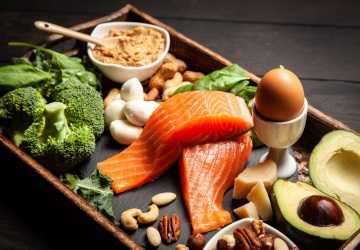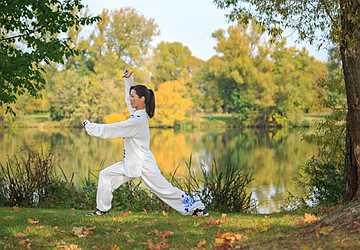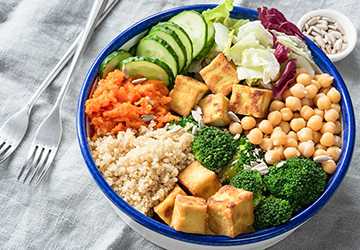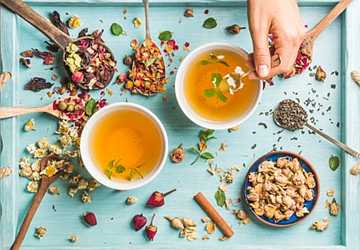health
Proteins are an essential need of the body. They are the building blocks that a body's muscles, cells, and tissues require for efficient functioning. Adding protein to your diet is essential for a normal and healthy lifestyle.
Vegetarians may lack sufficient protein in their bodies. Insufficient protein content may lead to chronic diseases such as anemia. Therefore, vegan diets must include plant-based protein-enriched foods to overcome protein deficiency.
In addition, meat is a significant source of protein, but for vegans, there are several protein foods other than meat to add to their vegetarian diet plans.
Have a look at some of the best protein sources for a vegetarian diet, exploring various varieties of meals as a substitute for red or white meat.
Protein-Rich Food For Vegans
A group of protein-rich foods are the best substitutes for meat. These proteinous foods fulfill your meat deficiency. So, plan a diet that helps you gain sufficient nutrients to retain energy and strength, even when sticking to a diet plan. Therefore, plan and follow a diet full of nutrition and healthy foods.
1.Lentils
Lentils are one the best sources of protein. A cup of lentils contains almost 18g of protein content. Lentils are rich in antioxidants, minerals, protein, fiber, and iron. They help maintain balance in protein levels, protect body cells, reduce heart diseases and cancer, and fight against gut bacteria.

In addition, regular consumption of cooked lentils covers the protein requirements for a vegan. Red, green, or a combination of both is an excellent alternative to meat.
You can eat lentils with rice for lunch or dinner for an extra protein portion or add them to soups, curries, salads, and stews.
2.Vegetables
Adding vegetables to your diet fills a small portion of protein. Veggies mainly contain vitamins and minerals. They are rich in fiber and low in calories. A plate of cooked or sauteed vegetables is a good source of protein, an essential portion to include in your meals.
Broccoli, sweet corn, potatoes, peas, spinach, and Brussels sprouts are low-calorie, high-protein vegetables. Add these veggies to your pasta, curry, or mixed vegetables for lunch. You can also fry vegetables to add a crispy crunch to your delicious meals.
3.Seitan
Another protein-rich meal for vegans is seitan. Seitan is made from wheat gluten with a similar appearance to meat. Wheat is a protein-rich grain containing 25g of protein content. Seitan also contains iron and potassium.
Seitan is readily available at grocery stores. You can grill, sautee, or enjoy it with other cuisines. However, people allergic to wheat gluten should try to avoid it.
4.Tofu, Tempeh & Edamame
A plant-based protein source, tofu, tempeh, and edamame are made from soybean, which is best for a vegan diet. These flavorful dishes can work as an alternative to dairy products. Soy binds calcium, iron, and minerals as a versatile protein source.
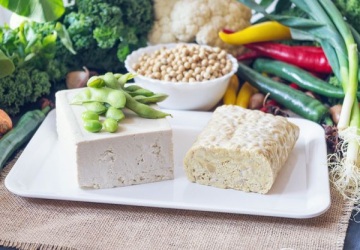
Tofu, a meat substitute, can enhance your recipes by adding soups, sandwiches, savory, or desserts. It's made from coagulated soy milk and absorbs the cooked meal's flavor. Tofu is cholesterol-free and may help prevent coronary heart disease. It contains potassium, calcium, iron, and protein.
Tempeh is more crunchy and nutty than tofu. It's formed with fermented soybeans and other protein-rich grains to make a dense texture. They are composed of calcium, protein, and fiber.
Edamame beans are raw soybeans that are green in color and sweet in flavor. They are steamed or boiled to enjoy as a snack, salad, or soup. Also, it contains calcium, iron, and vitamin C.
5.Quinoa
It's a unique, nutritious, plant-enriched food with protein containing essential amino acids, magnesium, zinc, phosphorus, iron, thiamine, and fiber. A cup of cooked quinoa carries an additional 5 grams of fiber. This gluten-free grain is more beneficial than other grains as it combines minerals, vitamins, carbs, and fatty acids.
Quinoa is easy to cook. Present it with meals or as a topping for salads, the base of bowls, or side dishes. Vegans should try quinoa patties instead of hamburgers to meet their protein requirements.
6.Eggs
Most people prefer eating eggs for breakfast. They are a fusion of nutrients, protein, and healthy fats. Eggs are a hidden source of vitamin D. The yellow yolk of the egg is protein-rich; however, you can avoid the whites if you are weight-conscious.
These 13-gram protein holders are perfect to start your day. You can consume eggs in various forms. Enjoy them as an Omelet, fried egg, boiled, scrambled egg salad, curry, or bakery items. Thus, the breakfast king is convenient for protein gain.
7.Peanut Butter
Peanut butter and peanuts are rich in taste and fulfill the needs of fiber, protein, fats, and vitamin E. In contrast, nuts are a great source of protein and carbs, productive in muscle and cell functioning—these nutrient-rich nuts keep you satiated.
Spread peanut butter on the toast and blend them in smoothies, dip, crackers, or fruits. Also, try peanut sauce for savory cuisines or desserts and pancakes. It's a perfect protein snack for vegetarians.
8.Dairy Products
Dairy products also compose beneficial compounds suitable for vegetarians to fulfill body requirements. Milk, yogurt, cream, cheese, and butter are tasty and healthy dairy items everyone should eat. Each contains probiotics, calcium, protein, and vitamin B12, which is helpful for your bone's growth and muscle strength.
Nutrients plus protein-containing dairy items can not only be used for making various dishes but can also be eaten raw. For instance, you can enjoy yogurt or curd, drink plain milk or a blend of fruits, or make smoothies or cheese for sandwiches or breakfast. Consuming dairy products daily also affects your skin.
Conclusion
There's no need to worry if veggie lovers follow a balanced vegetarian diet. Some people start a vegetarian diet as an interest. On the other hand, some may be vegetarian because they don't like meat. Ensure your diet is good enough to support body needs, vitamins, iron, carbs, and protein to lead a healthy and balanced life.
